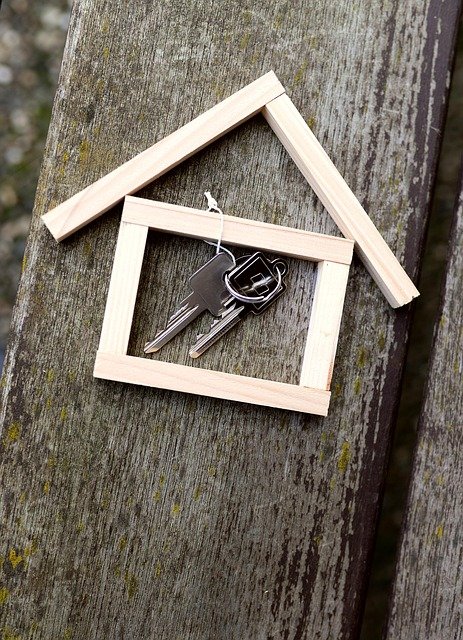The Complete Guide to Calculate Your Real Home Value
Determining your home's real value is a crucial step in making informed decisions about your property. Whether you're considering selling, refinancing, or simply curious about your investment, understanding how to calculate your home's worth accurately is essential. This comprehensive guide will walk you through the process, providing valuable insights and tools to help you determine your property's true market value.

The Importance of Accurate Home Valuation
Knowing the precise value of your home serves multiple purposes beyond satisfying curiosity. An accurate valuation helps you make informed decisions about selling, refinancing, or leveraging equity for other investments. It also ensures you’re not underpricing your property or setting unrealistic expectations that could lead to prolonged market time. Insurance providers rely on accurate valuations to determine appropriate coverage levels, while lenders use them to assess loan-to-value ratios. For homeowners in the UK, where property markets can vary significantly by region, understanding your home’s worth provides financial clarity and helps you plan for the future with confidence.
Factors Influencing Your Home’s Value
Several elements combine to determine what your property is worth in today’s market. Location remains the most significant factor—proximity to good schools, transport links, shopping centres, and employment hubs can substantially increase value. The size and layout of your home matter, including the number of bedrooms, bathrooms, and overall square footage. Property condition plays a crucial role, with well-maintained homes commanding higher prices than those requiring extensive repairs. Recent improvements such as kitchen renovations, loft conversions, or energy-efficient upgrades can add considerable value. Market conditions, including supply and demand in your area, interest rates, and economic trends, also influence what buyers are willing to pay. Finally, comparable sales in your neighbourhood provide a benchmark for realistic pricing expectations.
Professional Appraisals vs. Online Estimators
When seeking a home valuation, you have two primary options: hiring a professional appraiser or using online estimation tools. Professional appraisals involve a qualified surveyor visiting your property to conduct a thorough assessment. They examine structural elements, finishes, improvements, and compare your home to recent sales of similar properties. This method typically costs between £300 and £1,500 depending on property size and location, but provides the most accurate and detailed valuation. Online estimators, by contrast, use algorithms and publicly available data to generate instant valuations at no cost. While convenient, these tools lack the nuanced understanding that comes from physically inspecting a property. They may overlook unique features, recent renovations, or local market subtleties. Professional appraisals are essential for mortgage applications and legal transactions, while online estimators serve well for initial research or casual monitoring of property values.
Using Online Property Valuation Tools
Digital platforms have made property valuation more accessible than ever. Websites such as Rightmove, Zoopla, and OnTheMarket offer free instant valuation tools that analyse your postcode, property type, and basic details against their extensive databases of sold properties and current listings. These tools provide a useful starting point and can help you track value trends over time. However, their accuracy varies depending on the volume of comparable data available in your area. Properties in densely populated urban areas with frequent sales typically receive more accurate estimates than those in rural locations with fewer transactions. When using these tools, input accurate information about your property’s size, condition, and features. Consider obtaining estimates from multiple platforms and averaging the results for a more balanced perspective. Remember that these figures represent estimates rather than definitive valuations and should be supplemented with professional advice when making significant financial decisions.
Comparison of Valuation Methods
| Valuation Method | Provider/Approach | Cost Estimation | Accuracy Level |
|---|---|---|---|
| Professional RICS Survey | Chartered Surveyor | £300 - £1,500 | Very High |
| Estate Agent Valuation | Local Estate Agents | Free (with potential listing) | High |
| Online Estimator | Rightmove, Zoopla | Free | Moderate |
| Automated Valuation Model | Banking Institutions | Free (for customers) | Moderate |
| Comparative Market Analysis | Property Professionals | £100 - £500 | High |
Prices, rates, or cost estimates mentioned in this article are based on the latest available information but may change over time. Independent research is advised before making financial decisions.
DIY Methods for Estimating Your Home’s Worth
If you prefer a hands-on approach, several DIY methods can help you estimate your property’s value. Start by researching recent sales of comparable properties in your neighbourhood using Land Registry data, which provides actual sale prices rather than asking prices. Look for homes similar in size, age, condition, and features, ideally sold within the past six months. Calculate the price per square foot of these properties and apply that figure to your home’s dimensions. Visit open houses in your area to gain firsthand insight into how your property compares in terms of presentation, condition, and features. Create a detailed inventory of your home’s strengths and weaknesses, noting any improvements or issues that might affect value. Consider engaging with local estate agents for free valuations—while they may hope to secure your business, their market knowledge provides valuable perspective. Combine information from multiple sources to triangulate a realistic figure, and remember to adjust for current market conditions, as property values fluctuate with economic cycles and seasonal trends.
Calculating your real home value requires combining professional expertise, digital tools, and market research. Whether you choose a formal appraisal, online estimators, or DIY methods, understanding the factors that influence property worth empowers you to make informed decisions. Regular monitoring of your home’s value helps you stay aware of your financial position and identify the optimal time for major property decisions. By using multiple valuation approaches and staying informed about local market trends, you can arrive at a realistic and actionable understanding of what your property is truly worth in today’s market.




